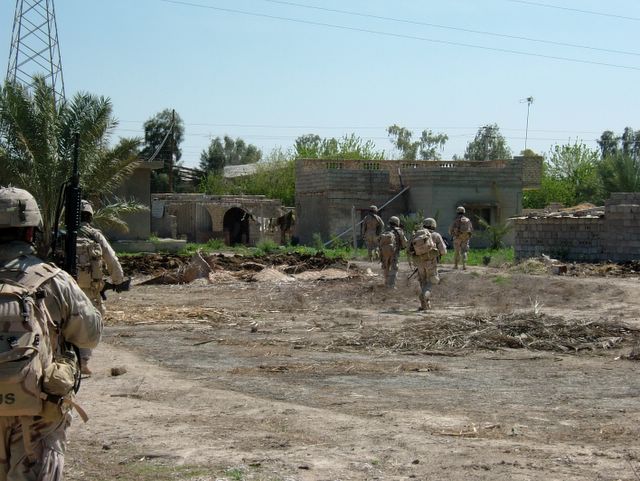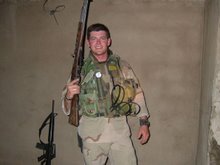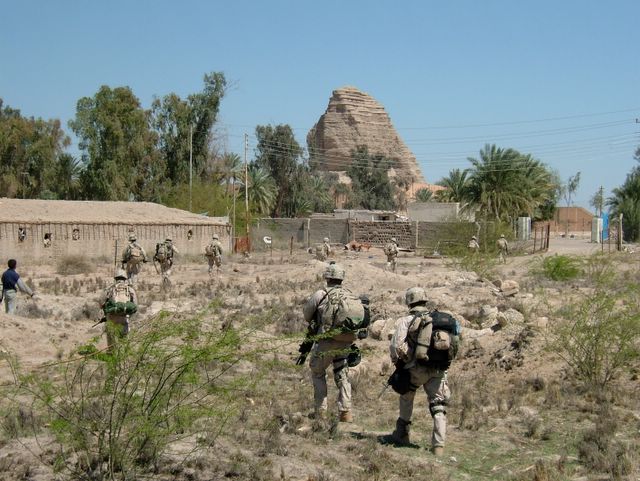Since its invasion of Iraq over three years ago, the United States has ridden a public opinion roller coaster. Pundits and armchair generals alike are quick to presume complete failure if even one aspect of an extremely intricate mission seems challenging. However, it is important to acknowledge that the task of altering the course of a nation is an extremely complex and in-depth objective. America has rebuilt Iraq’s schools, hospitals, infrastructure, economy and government in only three years and cannot stop now.
Some of the most substantial and recognizable improvements have been to Iraq’s infrastructure. Since America’s invasion over 2300 schools have been rehabilitated and constructed and are being fitted with over 8.7 million new textbooks (USAID, 2006). The U.S. believes that the children of Iraq are the future of the Middle East. It is important that all Iraqi children are given the opportunity to receive a well balanced and unbiased education, covering the core subjects as well as technological familiarization, hygiene and individual rights.
Only a few years ago Iraq’s health care was nearly the worst in the region. Since the invasion, the U.S. has spent over $600 million to assist Iraq’s Ministry of Health (USAID, 2006). Better nutrition as well as open access to healthcare for the first time in decades has made substantial improvements. Over 3.2 million children under the age of five have received vaccinations (USAID, 2006). These vaccinations are expected to reduce the child mortality rate. Instilling proper health habits with Iraq’s youth and educating mothers on proper nutrition habits will continue to have positive effects on Iraq’s health over all.
The United States has also helped Iraq hold some of their first legitimate democratic elections. Despite the security concerns, over 70% of eligible voters turned out in the December 2006 election (Saban Center Iraq Index, 2006). This strong turnout proves the people of Iraq are ready for change. Coalition forces put forth astounding efforts to educate the public on the democratic process. Over 1.5 million election publications were distributed throughout the country (USAID, 2006). On Election Day, the Iraqi people waved their purple stained fingers in the air with pride to show they had voted. They are presently being led by a government they elected to represent them.
Throughout Saddam’s reign and with the Coalition invasion many of Iraq’s roads and bridges were disabled. One of the first initiatives after the invasion was to rebuild Iraq’s busiest bridges and interstates in some of Iraq’s largest cities. Doing so has increased the flow of traffic and substantially reduced traffic accidents. The reduced traffic congestion has also helped Iraq’s new first responders and Iraqi police arrive at emergencies much faster.
Iraq’s economic policy in early 2003 was in a devastating state. There was corruption and lack of education widespread in both the private sector as well as within Iraq’s ministries. The U.S. has assisted in training government leaders in economic policy and helped create a national economic strategy. In 2003 Iraq’s Ministry of Finance introduced the new Iraqi dinar which now has over 4.62 trillion in circulation (USAID, 2006). Oil revenues have gone up astronomically, from $2 million in June 2003 to $62.6 billion in July 2006 (Saban Center Iraq Index, 2006). More and more Iraqis are able to open businesses. Unemployment decreased from 60% in June 2003 down to 25% a year later, and continues to drop substantially helping the security situation (Saban Center Iraq Index, 2006).
Iraq has also seen substantial increases in the quality and numbers of their security forces. Both the Iraqi police and the Iraqi Army are making continuous strides in their tactical abilities and their discipline. The U.S. has installed very thorough training programs for the varying types of military and police forces in Iraq. The Coalition Military Assistance Training Team has been instrumental in training the Iraqi Ministry of Defense at all levels. The Civilian Police Assistance Training Team provides a similar role and is made up of American Military Police personnel. Coalition Military Assistance Training Team and Civilian Police Assistance Training Team provide training throughout the entire development of the organization, turning recruits off of the street into a combat force ready for security responsibilities on some of Iraq’s most dangerous streets (Multi National Forces Iraq, 2006).
The Iraqi Army and Police forces are having continuing success with their recruiting and retention. There is always an abundance of passionate and willing volunteers to join the forces. In Baghdad alone there are over 42,000 Iraqi security forces with thousands volunteering daily throughout the country (Multi National Forces Iraq, 2006). The U.S. is currently working to make these forces more self-sustaining. While Iraqi forces are taking on more and more roles in combat operations, they are still working on being able to provide their own essential support functions.
In less time than it takes the United States to make one military officer, a nation has been liberated and is making enormous strides towards independence. Now more than ever the American-led coalition needs unilateral support for its efforts in Iraq.
A premature pull-out would have devastating effects. A lack of substantial security presence would trigger a series of tragic events as has been seen in Rwanda, Somalia and Afghanistan. Initially the crime rates would begin to rise. Not necessarily organized crime, but every day theft, homicide and assaults. As crime began to spin out of control, the varying sects of Islam in the region would begin to fight for control of the country. Funding and influence from Iran, Syria, Jordan and varying organizations such as Al Qaeda and Hezbollah would certainly contribute. The opportunity to have a geographic region to base international operations out of is very enticing to many up and coming terrorist organizations, such as Afghanistan was to the Taliban.
The Iraqi people would be caught in the middle of this chaos. The economy would probably crumble first, initiating a domino effect leading to teachers and health care professionals slowly dwindling away for fear of their safety. Businesses would begin to either close or be forced to pay for their protection to an insurgency group. Eventually, the threat of this region to the west would be greater than it is now or ever was. Thousands upon thousands of Iraqi people would be slaughtered in civil war.
The United States is certainly on the right track. No mission of this size ever gets accomplished problem free. The American people need to realize that a country cannot be liberated over night. America must stay the course. Too much has already been sacrificed and accomplished to disregard the successes made up until this point. The future of Iraq is promising... if the American people want it to be.












